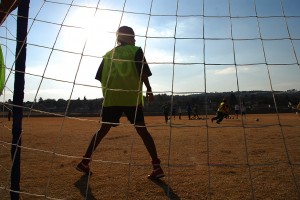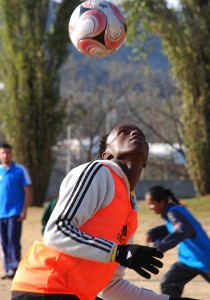The French football team didn’t do too well but France should get a big pom pom for this initiative:
Reporters Without Borders unveils first “Anti-Censorship Shelter”
Reporters Without Borders today launched the world’s first “Anti-Censorship Shelter” in Paris for use by foreign journalists, bloggers and dissidents who are refugees or just passing through as a place where they can learn how to circumvent Internet censorship, protect their electronic communications and maintain their anonymity online.
“At a time when online filtering and surveillance is becoming more and more widespread, we are making an active commitment to an Internet that is unrestricted and accessible to all by providing the victims of censorship with the means of protecting their online information,” Reporters Without Borders said.
“Never before have there been so many netizens in prison in countries such as China, Vietnam and Iran for expressing their views freely online,” the press freedom organisation added. “Anonymity is becoming more and more important for those who handle sensitive data.”
Reporters Without Borders and the communications security firm XeroBank have formed a partnership in order to make high-speed anonymity services, including encrypted email and web access, available free of charge to those who user the Shelter.
By connecting to XeroBank through a Virtual Private Network (VPN), their traffic is routed across its gigabit backbone network and passes from country to country mixed with tens of thousands of other users, creating a virtually untraceable high-speed anonymity network.
This network will be available not only to users of the Shelter in Paris but also to their contacts anywhere in the world and to all those – above all journalists, bloggers and human rights activists – who have been identified by Reporters Without Borders. They will be able to connect with the XeroBank service by means of access codes and secured, ready-to-use USB flash drives that can be provided on request.
XeroBank is a communications security firm that has cornered the market on one of the rarest commodities in the world: online privacy. It specializes in communication solutions that protect its clients from all eavesdroppers.
The best-known free encryption and censorship circumvention software is also available to users of the Shelter, along with manuals and Wiki entries on these issues. A multimedia space is planned for journalists and Internet users who want to film and send videos.
The Shelter will eventually also have a dedicated website for hosting banned content. Egyptian blogger Tamer Mabrouk’s reports on the pollution of Egypt’s lakes, which are banned in his country, and articles that are banned in Italy by its new phone-tap law will all have a place in what is intended to be a refuge for those who still being censored.
The Shelter is open from 10 a.m. to 6 p.m. Monday to Friday. Anyone wanting to use it should make a reservation by sending an email to shelter (@) rsf (dot) org
The Shelter could not have been created without the support of the Paris city hall.
Reporters Without Borders points out that around 60 countries are currently subject to some form of online censorship and that Internet filtering is in effect in around 40 of them. About 120 netizens (bloggers, Internet users, and citizen journalists) are currently in prison worldwide.















